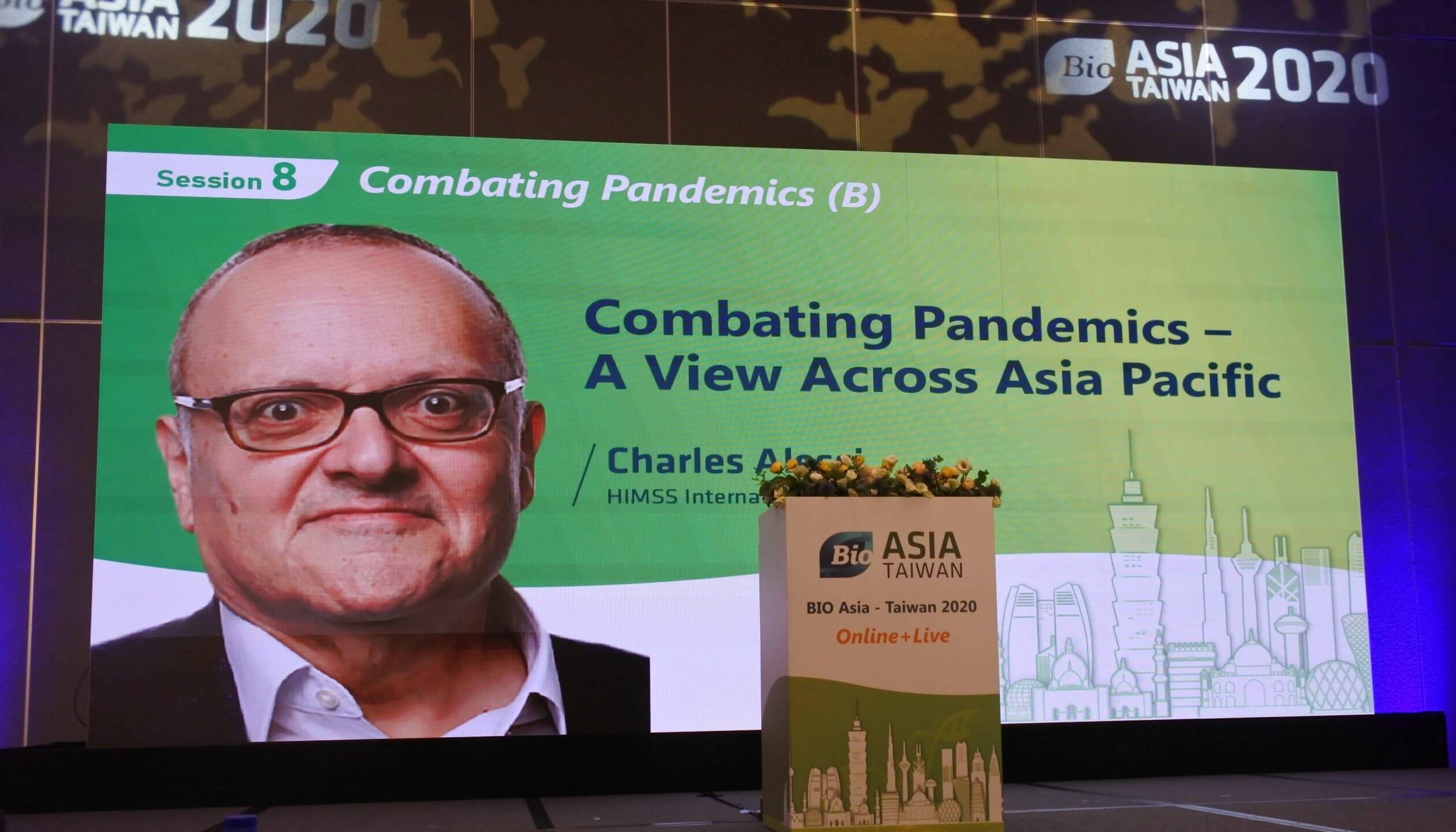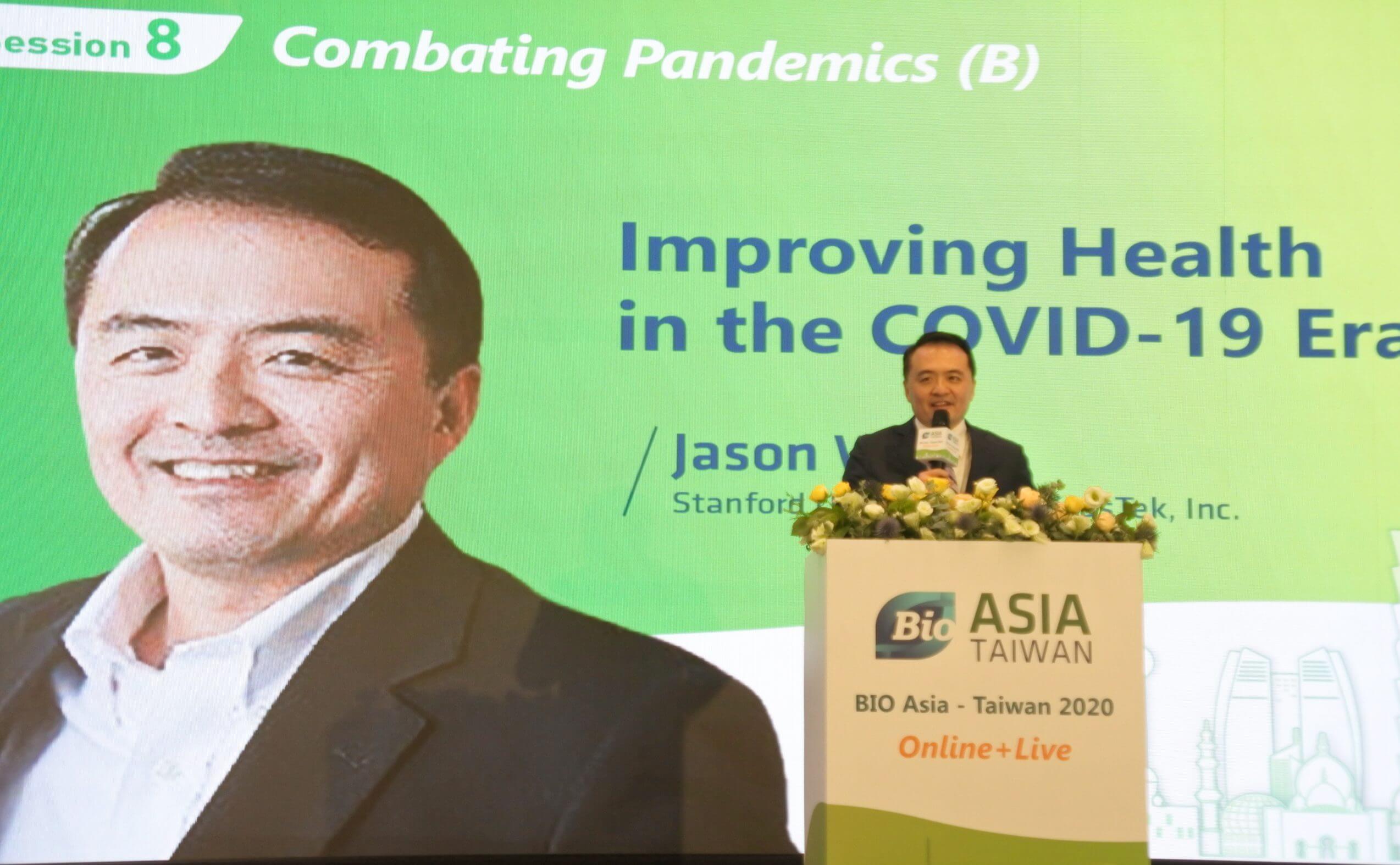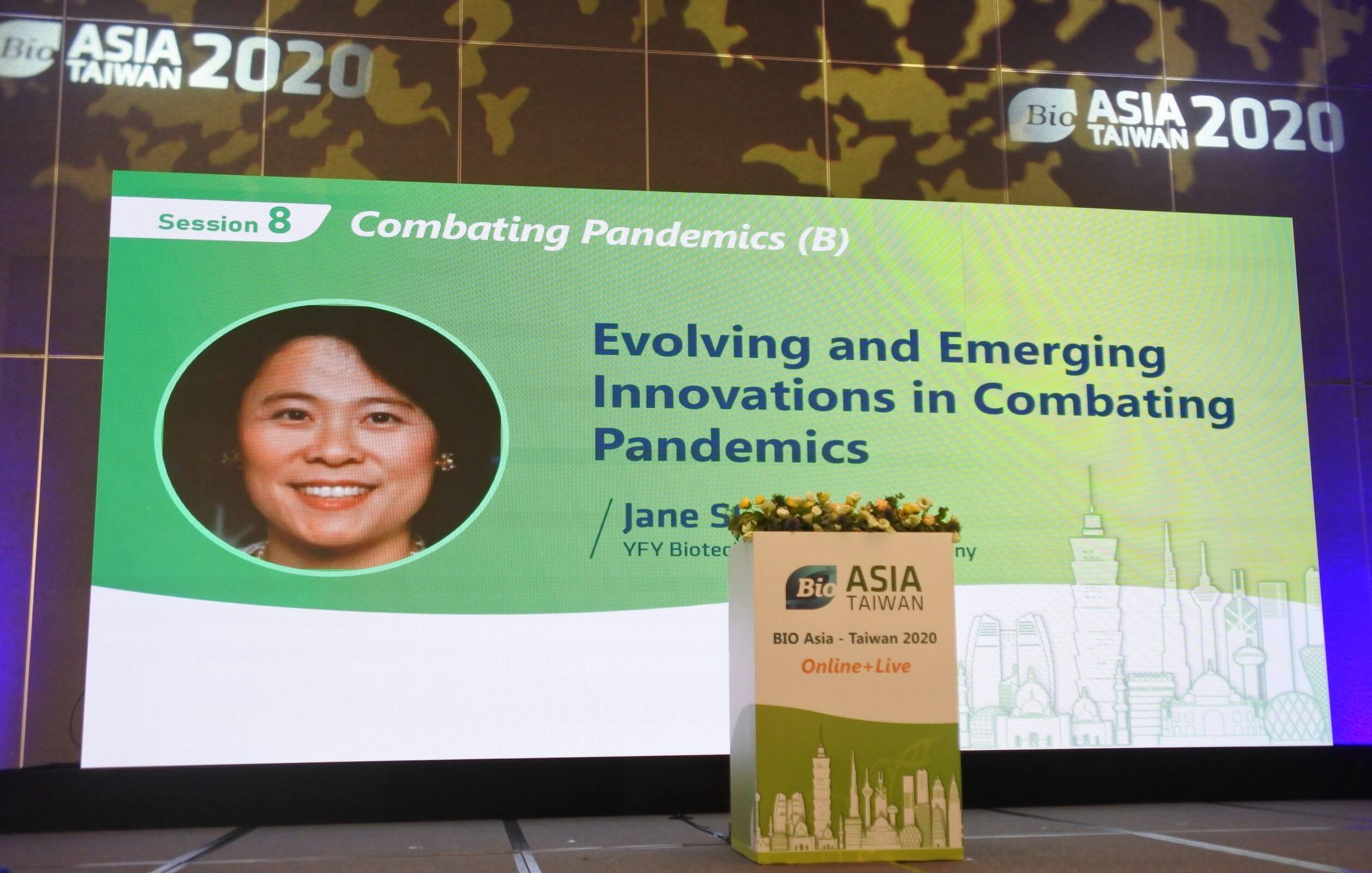Innovative Diagnostics, AI, Blockchain and Telemedicine Boosts COVID-19 Fight
By Sangeeta Chakraborty, Ph.D. &
Sahana Shankar, Ph.D. Candidate
In the second “combating pandemics” session at BIO Asia-Taiwan, discussions revolved around ways to prepare the world from future pandemics based on our learnings from COVID-19.
While the SARS epidemic primed Taiwan and Southeast Asia in developing a systemic response to the novel coronavirus, the world today is drastically different from 2003. Dr. Hong Jen Chang addressed the possible second wave and the need to test other viruses when the flu season begins in the winter.
Combating Pandemics – A View Across Asia Pacific
Charles Alessi, Chief Clinical Officer, Healthcare Information & Management Systems Society (HIMSS) International, hailed the Asian countries for the deployment of some of the most effective pandemic mitigation efforts in recent times.

Countries like Japan, South Korea, and Taiwan did exceedingly well in keeping their death numbers low by learning from past catastrophes of SARS, MERS, and H1N1. He further emphasized that the quickness with which these countries mobilized resources, managed the port of entries, ramped up testing, and ensured adequate PPE, was perhaps the best way to deliver a response in a crisis “You (Asia Pacific) flicked the switch better than anybody else,” he said.
The value of constant and trusted communication between the government and its people is critical in dealing with any crisis. Elaborating on this, he mentioned that government agencies in Asian countries, from the very beginning, established clear and consistent information flow, which in turn ensured better compliance among people. Some Asian countries did not let COVID-19 overwhelm their healthcare infrastructure either. Even at the peak of the outbreak, they effectively managed other non-COVID-19 cases by employing digital methodologies.
“If there is something we have learned, we have largely learned it from you (Asia Pacific) because, to be frank, the place to look at for the response, certainly for the first wave of COVID-19 crisis, is to the Asia Pacific,” he concluded.
Improving Health in the COVID-19 Era
Dr. Jason Wang, Co-Founder of MedicusTek, and Associate Professor of Pediatrics and Medicine at Stanford University said that COVID-19 has fundamentally changed patient care by accelerating telehealth into clinical practice. He addressed the importance of the mental health of those in quarantine and possible technologies to keep people socially engaged. He talked about the need to remodel medical education to address and minimize patient suffering. One of the worst outcomes is the inability to care for family members and when patients are left alone.

He urged for technological interventions to allow families to connect and provide closure in case of a patient’s passing. He also addressed the socioeconomic disparity in healthcare access and how there is a need to democratize it. As a practicing pediatrician, he is developing new procedures to fit into the scheme of post-COVID healthcare. Blockchain and improving AI models to monitor contract tracing and monitoring people’s travel and medical history may be ways to digitize healthcare and disease prevention.
COVID-19 – The Value of Diagnostics
Ms. Richeal M. Cline, Global Head of Quality & Regulatory Affairs, Roche Diagnostics, talked about Roche’s contribution and actions toward the pandemic control. “Roche has been actively working with urgency and passion to contribute to the response amidst an unprecedented global pandemic,” she said. She emphasized how the company has ramped up the production of its COVID-19 tests—the Cobas SARS-CoV2 that detects viral RNA in nasal swabs and Elecsys anti-SARS-CoV2 immunoassay that detects antibodies in patient’s blood sample, to meet global demands. She added that the antibody test is quite relevant in epidemiological research to help track the disease spread from asymptomatic individuals who have COVID-19 antibodies in their blood.

Talking further about the line of Roche products that are playing a significant role in supporting patient management during the COVID-19 crisis, she highlighted their blood gas and sepsis products: Roche v-TAC, that assesses disease severity in patients with respiratory compromise and Elecsys IL-6 kit that detects hyper inflammation in COVID-19 patients.
She also mentioned Roche’s evaluation of Actemra (COVACTA trial), Actemra plus Remdesivir (REMDACTA trial), and other trials to explore the potential utility of their existing molecules as an effective COVID-19 therapy. On humanitarian grounds, Roche has been involved in donating medicines and medical supplies to governments around the world to help manage the pandemic. “We are committed to supporting local authorities and organizations to ensure that patients receive the tests, treatments, and care they need,” she concluded.
Evolving and Emerging Innovations in Combating Pandemics
Dr. Jane Tsai from YFY Biotech Management Company spoke about evolving and emerging innovations in combating pandemics. While acknowledging the suffering of COVID patients and families and the tremendous efforts of healthcare workers, she shared her views on the unprecedented speed and global scale of efforts to identify, understand, and fight the pandemic. The molecular diagnostic tests have undergone multiple advancements in keeping with new information about viral sequence, multiple mutations, and strains. We also have a wide array of biomarkers that aid in the diagnosis, clinical prognosis, and prediction of disease progression. Some examples are IL-6, IL-10, Troponin, WBC count, and LDH.

She observed how regulatory pathways and policies were made flexile to accommodate emergency use authorization (EUA) to accelerate the marketing and availability of IVD (In-vitro diagnosis) products. Taiwan has over 30 products in EUA in response to COVID-19. There are also AI-based systems for patient monitoring and disease prediction models. She stressed how we need to plan for post-pandemic requirements of regulatory networks which should be different from emergency regulations. Some paths forward are precision medicine, digital health, building innovation infrastructures, and proactive data analytics with real-world evidence.
Editor: Rajaneesh K. Gopinath, Ph.D.
Related Article: Efforts Behind the Taiwan Model of Combating COVID-19 Pandemic
©www.geneonline.com All rights reserved. Collaborate with us: service@geneonlineasia.com









